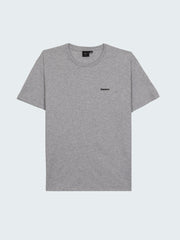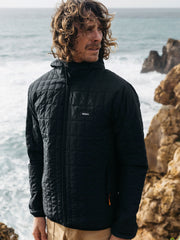Growing up beside the ocean in the far reaches of the Gower Peninsula, early life should have been idyllic for Christina Watts. But, sheltered from queer communities and surrounded by stereotypical media and the prevailing short-sighted outlook of the time, it was anything but. In this touching note, Christina shows her younger self that life’s beauty is just around the corner.
Pride: A Letter To My Younger Self
01.06.23
4 min read
Written by Christina Watts
Hello younger me. You’re around 16 now, I think? There are already whispers about you in school. People think you’re different. You’ll hear someone ask, “Is she a…lesbian?”. You don’t know this about yourself yet. No surprises there because you’ve been brought up on Disney shows where the handsome guy rescues the princess; you’ve never seen yourself in the media. Growing up, if a queer character popped up on tv - the channel would be changed abruptly. How can you know yourself if you never see people like you? You just feel completely alone.
When the older women in your family would nudge you and giggle when a buff rugby guy would walk by, you’d smile and nod – not getting it at all. In your teens, you’ve just accepted that you’ll be alone forever, because the alternative of living with a woman and being happy is not even something that you’re aware can happen...
The ocean has always been your outlet, and you escape into the waves every week, even though, as a girl on the waves, you’ve been made to feel you don’t belong in this male-dominated world. When you tentatively mention you love to surf in class, you’re met with incredulous stares from your male classmates... “You surf? Yeah, right.” Before we even get into your queer identity, you’re already made to feel like you don’t belong. Stay in your lane, girlie.
When you’re 17, you join the college surf club and head down to the beach, all bundled in the college van. You spend blissful hours down Llangennith – your mind is emptied. All you can think about is the next wave you’ll catch and that happy feeling that will live in your body for the next few hours post-sun exposure and exercise.
Then something shifts. I’m not sure how to break this to you, so I’ll just say it – the beach isn’t a massive part of your life anymore.
There’s no straight (excuse the pun) answer to this. I’ll explain how you got here – existing as a queer person in a heteronormative world means that the way you view yourself, your body and the space you take up changes. You shrink… for a little while, at least anyway.
During your early twenties, there’s a pandemic (I’ll save this for another letter), and you finally have time to stop and think about things. You do some soul-searching and realise that the reason “ you looked like you were going off to war” (thanks for the quote, Dad!) when going on dates with guys is that you were just not attracted to them. You spend the lockdown months getting to know an incredible woman and you become covid pen-pals. When restrictions lift, you go on a date with that very same woman who is now your girlfriend (spoilers!)
You’ll kiss your girlfriend for the first time at your favourite beach, and despite this being one of the best things to ever happen to you, you’re worried about how your loved ones will react.
Your coming out process isn’t easy. Someone close to you disowns you for a time, and well-meaning people claim your life will now be difficult and lonely. A moment that stays with you was when you were 12, you tentatively brought up the concept of gay marriage, and a family member said, “ Well, where do we draw the line? If a woman can marry another woman, what’s the next step – humans marrying dogs?”. This comment made you feel like a monster, and you vowed to never bring it up again.
Despite finding great comfort in realising your identity, the harsh words from loved ones creep into your psyche. You withdraw; a side effect is you feel less confident in your body and your ability. You stop swimming, you stop surfing, and you stop movement more or less altogether. To move is to be seen, and to be seen is to be judged – and to be judged, well, it simply doesn’t feel safe. And suddenly, those years of hearing homophobic comments growing up have manifested in how you view yourself and your body.
The world becomes scarier for queer people. In particular, the trans community – and it’s important to be aware of your privilege as a cis gender-conforming white woman. Your surfing heroes from childhood speak out against transgender people competing in the sport, and it makes you so angry. You feel that queer people just aren’t welcome anywhere anymore.
This feeling doesn’t go away, until one day you’re doom-scrolling (don’t worry about this. You’ll understand later) through Instagram, and something new will pop-up on your feed. It’s a post from Queer Surf Club, and you feel like it’s a beacon calling you back to the waves. A man named Frazer has started the club to get LGBTQIA+ folks into surfing. You realise others like you’ve felt the sea isn’t for them anymore. You can see yourself back in the water for the first time in years. I’m happy to tell you that you will get back in the water one day and rediscover this part of yourself and it’s all because of Queer Surf Club.
With time you feel more at ease in your identity, and your queerness goes from a source of shame to a source of pride. I want you to know that you will find your people. You’ll be an official witness at the first-ever Jewish LGBTQIA+ wedding in Scotland (cool, right!). You’ll even write a piece about surfing and being queer (hello, fourth wall), and you’ll find nothing but utter compassion for the younger version of you who felt she had to hide.
Love
Future you x
PS: Don’t watch the L-Word on the family Netflix account, and think you’re smart for deleting the history. Your parents are smarter than you think.

















































































